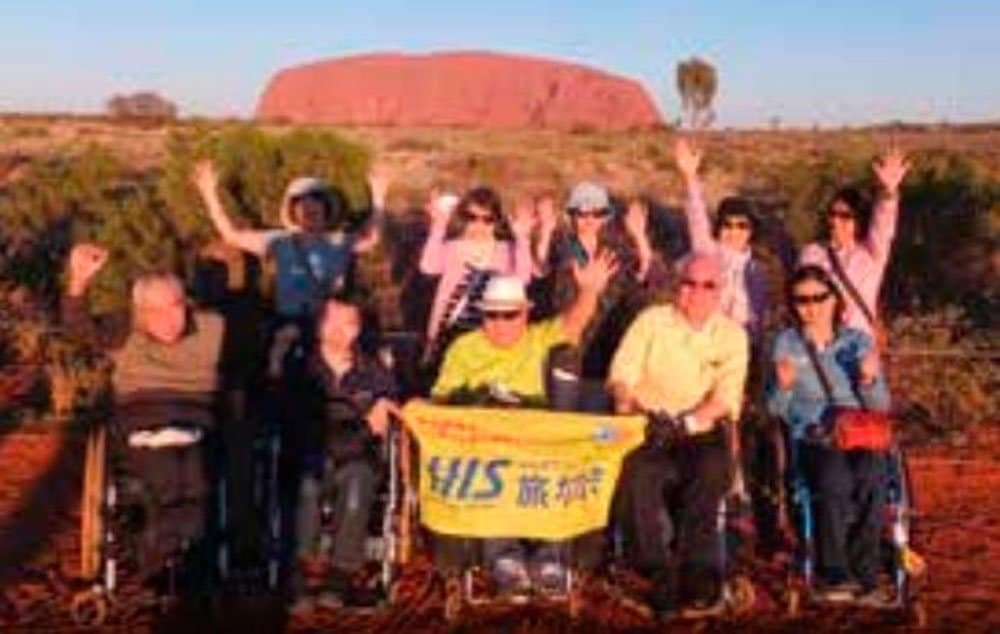Limited stamina or unsteady legs need not prevent one from traveling. As society ages, major travel agencies are making efforts to promote “Universal Tourism,” which enables anyone to enjoy domestic and international travel regardless of age or disability.
Attention to detail
These tours strive to keep the pace relaxed, such as by keeping sightseeing manageable even at major landmarks, and by coordinating transportation to reduce walking times and distances.
Attention is also paid to the times and frequency of restroom breaks, as well as the facilities available at boarding locations.
Generally such tours have 10 to 20 participants so that guides can pay close attention to them. Many participants have similar health circumstances, which seems to reduce embarrassment.
The pamphlets for Yuttari-tabi (unhurried travel) tour packages by Club Tourism International Inc. feature three-level easiness ratings based on factors such as estimated walking time.
For example, the four-day Taipei course is listed as Level 2. Elements of the tour include “1 to 1½ hours of walking per day” and “essentially no stairs, steep inclines or long inclines.”
Jiufen, a famous destination on the tour, features many stairs, but small vans take participants closer to the site than a large bus would be able to go — reducing leg strain. The National Palace Museum in Taipei, which attracts large numbers of sightseers, is visited in the afternoon when it is less crowded. Club Tourism also offers trips for those who use canes or wheelchairs.
JTB Corp.’s overseas Tabi-saisai, trips, marketed to those over 60, also feature three-level ratings for the estimated walking times of destination tours.
H.I.S. Co. offers the Barrier-Free Tabi Nakama tour, which features buses with lifts and is open to those using wheelchairs or canes, and the Sign Language Tabi Nakama for travelers with hearing difficulties.
Staff who are certified social workers are available to answer questions about the trips, and tours are accompanied by specialist guides who possess the required care skills. Staff who know sign language accompany travelers taking the Sign Language Tabi Nakama.
JTB also offers tours that let participants undergo dialysis treatment while abroad. On a nine-day tour that crosses through Italy, treatment appointments are scheduled on the second, fifth and seventh days.
Share your needs
Since these tours are often taken in small groups, be sure to discuss as early as possible any in which you are interested with the travel agency. It is important to share your current condition in detail to determine whether participation is possible, or if you would be able to fully enjoy the trip. There may be cases in which it is better to arrange for a wheelchair in advance, even if you feel that you can walk on your own.
As a general rule, tour guides can offer physical assistance for situations such as climbing over curbs, but they cannot offer exclusive or continued assistance such as pushing wheelchairs. If this sort of service is required, there are tours in which a personal helper can be added for a fee.
Fonte: Japan News



